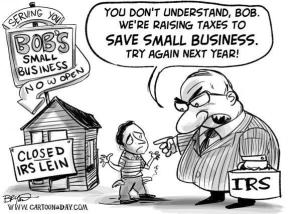Sometimes I’m baffled by the workings of the human mind. For example, why would a retailer in the UK, already burdened with some of the most onerous and inequitable taxes imaginable, not least business rates, actually propose to the government that they introduce a new one, specifically aimed at retail?
Well it seems that’s exactly what Justin King, the Chief executive of Sainsburys has done. He’s recently called for an internet purchase tax to be applied in the same way he thinks it’s being applied in the USA. I say ‘he thinks’ because he seems to have misunderstood the reason this tax is being called for over there.
As I’m sure many of you will know, the US don’t have business rates like we have. They have local purchase tax, which is often added only at the time of purchase. Items are priced ‘plus taxes’ which are often variable from state to state and region to region. Because websites can make sales across state and regional lines, many of them have been charging a different rate of tax to what should be paid in the areas where the purchase was made. In some cases they haven’t charged the tax at all.
Is this right? No of course it’s not. But it has pretty much zip to do with the way retailers pay local taxes in the UK. In the US they are probably quite right to be considering the Marketplace Fairness Act in order to ensure online retail is contributing to local coffers in the way it should. Here we pay business rates at a flat rate based on the valuation of the property you occupy. Internet retailers pay these too for distribution warehouses, offices and the like.
What gets up the nose of many retailers, me included to some extent, is that these companies can be based in locations where local rents and by association, local business rates are lower. Whereas anyone in a high profile high street location would pay a lot more. That’s because we pay rates based on notional valuations and not as a tax on revenue. I’ve gone to some lengths to explain how batty I think this system is, but I don’t think introducing a completely new tax is going to make it any more sane.
Golden Goose
Yes it’s annoying and yes it seems unfair, but in essence it’s not. Online retailers are still paying rates and taxes, but just not at the same level as a normal retailer. I agree taxes and overhead costs for bricks an mortar retailers are too expensive, but I don’t agree that we should fix that by making online retail just as ridiculously costly.
That’s not levelling the playing field, that’s digging ourselves into a hole in the middle of the penalty box.
Many online retailers are  also bricks and mortar operations who already pay a fair share of business rates. Their online sales may to a large extent be supporting other parts of their business. Taxing them more isn’t going to improve that situation. Increased taxation would also have to be passed on to customers, hence neatly strangling the golden goose that may be keeping many parts of the retail industry aloft.
also bricks and mortar operations who already pay a fair share of business rates. Their online sales may to a large extent be supporting other parts of their business. Taxing them more isn’t going to improve that situation. Increased taxation would also have to be passed on to customers, hence neatly strangling the golden goose that may be keeping many parts of the retail industry aloft.
There also seems to be some sort of naïve belief by Justin that ministers will conflate this new tax with business rates and seek to reduce one at the cost of another. Whereas I don’t have quite the same touching faith in any chancellors spirit of fair play. Especially not one who’s faced with the biggest book balancing challenge since Margaret Thatcher left charm school.
I’ve been warning about the prospect of an internet purchase tax for the past couple of years. It’s low hanging fruit that I’m surprised the chancellor hasn’t already started to salivate over.
Governments consistently support the mantra that taxing success should not be the way to go and I largely agree. Why apply what amounts to a punitive tax on internet based operations rather than reduce the taxation being applied to bricks and mortar?
Yes, retailers in the UK pay far too much tax, well the ones who actually pay tax do, and certainly far too much in business rates. But adding to the tax burden elsewhere is not going to solve that problem. Even if such a tax was sold on the basis of a reduction in business rates across the board, it’ll be a safe bet that pretty soon afterwards that whole relationship will slip into the same grey area that local taxation resides in now.
It’s more likely that an internet purchase tax would be applied in the same way as airport tax, or insurance premium tax. Just slapped on at a nominal rate which will then be increased gradually in successive budgets. Pretty soon we’ll just see it as another one life’s certainties, just like any other stealth tax. We’ll moan but we’ll pay it and maybe a few more businesses will go to the wall.
Moreover any government that introduces such a tax is effectively agreeing with me and many others that applying a flat tax business rate to every other business premises in the country is wrong. If online retail should pay an overhead tax based on revenue then why not the same for bricks and mortar retailers?
If the conclusion to this debate is a fairer system of local taxation based on ability to pay and it’s applied to ALL retail operations, then I’m all for it. But I very much doubt there’ll be any change to business rates as they stand now if such a tax were introduced. Maybe I’m just not very trusting of government ministers. Or maybe I’m less naïve than Justin King.
Either way, let’s stop putting such ideas out there shall we? After all you have to be careful what you wish for in this life, as sometimes you might just get it.


